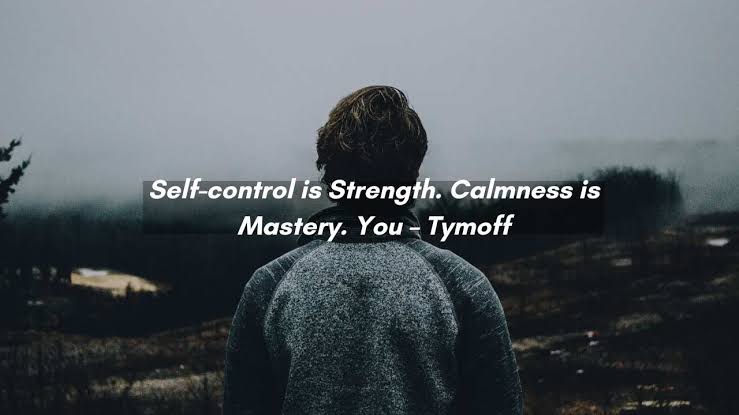Self-Control: The Foundation of Strength
Self-control is often misunderstood as mere restraint, but it goes beyond that. It’s the ability to regulate one’s emotions, thoughts, and actions in the face of temptations and impulses. In a world that constantly bombards us with choices and distractions, having the discipline to stay focused on long-term goals rather than succumbing to short-term gratifications is a true strength.
When we practice self-control, we are actively choosing to align our actions with our values and goals. This requires immense mental fortitude. For instance, saying “no” to an unhealthy habit or resisting the urge to react impulsively in a heated situation showcases the power of self-control. It’s the foundation upon which we build resilience and fortitude, enabling us to face life’s challenges with grace.
Tymoff’s emphasis on self-control as strength underlines the fact that those who can regulate their inner world are better equipped to manage the outer world. Success, in any realm, often requires discipline and the ability to stay the course, despite distractions or difficulties.
Calmness: The Path to Mastery
The second part of the quote, “Calmness is mastery,” speaks to the deeper wisdom of remaining composed in the face of adversity. Calmness isn’t just about being quiet or passive; it’s about having a sense of inner peace and control regardless of external chaos. Mastery over one’s emotions allows for clearer thinking and better decision-making.
In stressful situations, calmness allows us to rise above the immediate turmoil and see the bigger picture. It’s not about ignoring problems but approaching them with a steady, thoughtful mindset. People who cultivate calmness are less likely to make rash decisions or be swept away by panic. Instead, they can remain composed and think critically, allowing for effective problem-solving.
Calmness also influences those around us. A person who remains calm in a crisis often becomes a source of stability for others. This ability to stay centered under pressure is a sign of true mastery over oneself and one’s environment.
The Power of “You”
The final part of the quote, “You”, brings the focus back to the individual. It’s a reminder that both self-control and calmness are personal choices. No one can give you these qualities; you have to cultivate them within yourself. Whether you are trying to achieve personal, professional, or relational success, the key lies in your ability to control your emotions and maintain composure.
The power to change your life starts with you. By developing self-control, you gain the strength to overcome obstacles, and through calmness, you achieve mastery over life’s challenges.
Applying the Wisdom of Tymoff
Incorporating these ideas into daily life may seem challenging, but the rewards are immense. Start by practicing mindfulness, which helps increase self-awareness and self-regulation. Being mindful allows you to notice when you are being triggered by emotions or external events, giving you the space to choose how to respond.
Additionally, learning to pause before reacting can help cultivate both self-control and calmness. In moments of stress, take a deep breath, count to ten, and then decide how to proceed. This small habit can make a world of difference in how you handle difficult situations.
Finally, remember that growth is a journey. Self-control and calmness are not qualities you master overnight, but with consistent effort, you can strengthen them over time.
Read also: Selena Green Vargas: Understanding the Viral Sensation
Conclusion
“Self-control is strength. Calmness is mastery. You – Tymoff” is a powerful reminder of the inner resources we can develop to lead more fulfilling and successful lives. Self-control provides the strength to navigate life’s challenges, while calmness allows us to master our emotions and reactions. Both qualities begin with you. The journey to becoming a better, more composed version of yourself is within your reach, and it starts with the choices you make every day.
